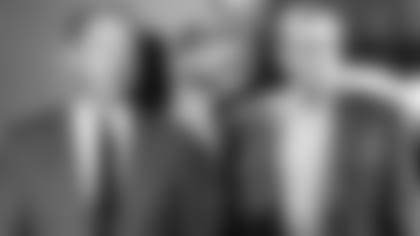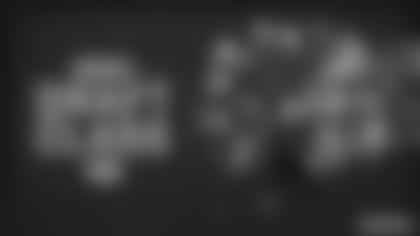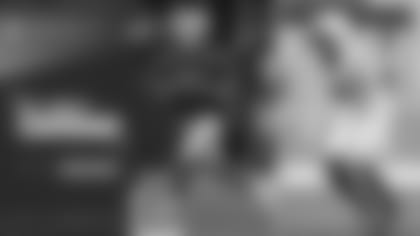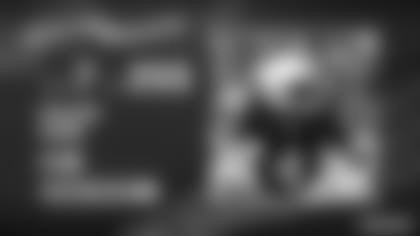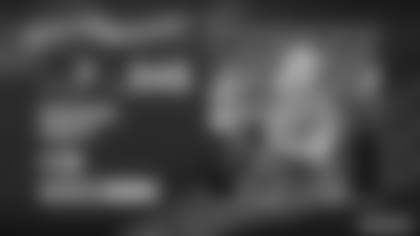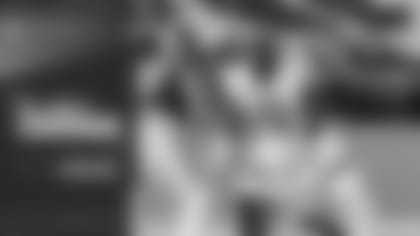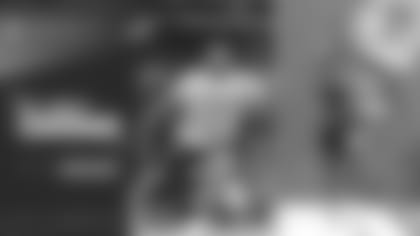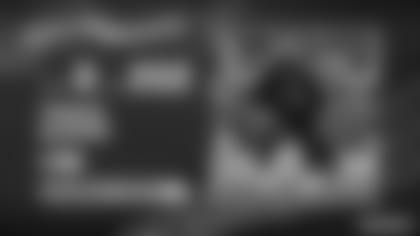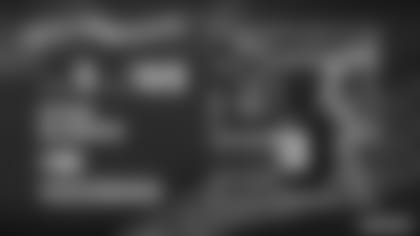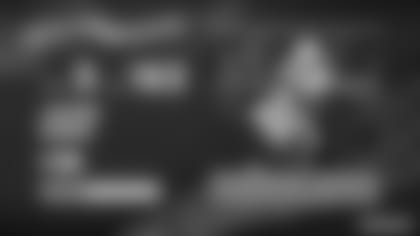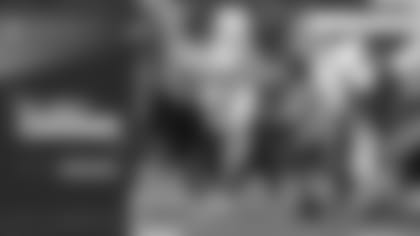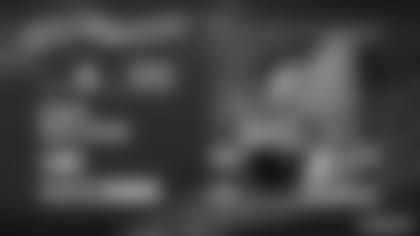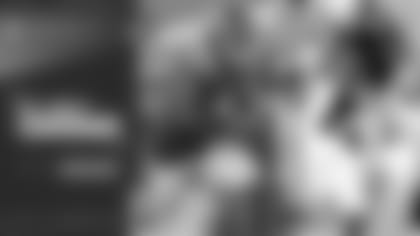Red Cochran spent 42 years working for the Packers as an assistant coach and scout. This is the second of a two-part oral history and starts with his second stint on the Packers' coaching staff. After serving as Vince Lombardi's backfield coach for eight seasons, Cochran returned to the Packers in 1971 as Dan Devine's backfield coach. Cochran subsequently served as a college scout from 1975 to 2004. He was inducted into the Packers Hall of Fame in 1997.
On returning to the Packers in 1971: "I had gone to San Diego to work for Charlie Waller, a good friend, when (Sid) Gillman stepped upstairs. Then when Gillman came back, Waller went back to being the backfield coach and I was out of a job. I never liked Gillman and wouldn't have wanted to work for him anyway. So I called Pat Peppler (Packers personnel director) and asked him to talk to Devine about a job. Peppler had me scout Willie Buchanon and I wrote a favorable report. I think Peppler used that as leverage with Devine to get me the job. Devine didn't know me from Adam's house cat."
On working for Devine: "That son of a (buck). He didn't know if a football was blown up or stuffed."
On how often Devine showed his Packers players game films of his University of Missouri teams:"More than enough. He was just a nitwit."
An example of Devine's lack of football knowledge:"We were looking at a film one time after a game. It was a fake to the fullback on the weak side and a quick slant to the weak-side end (or receiver). It was a short-yardage situation. The halfback was supposed to go after the linebacker like he was going to block him for that slant, then hit the flat. If the quarterback saw that the halfback had the first down, he was supposed to hit him. If the end broke past the safetyman – if the safety came up to play the run – then (the quarterback) hits the end for the touchdown. And if the cornerback covered that end, the halfback was supposed to turn and head upfield. We called it a flat-and-up. MacArthur Lane screwed up the play (on this occasion). He went out in the flat and stopped, instead of turning it up. So the cornerback covered the end, the safety was up on the fullback and here was Lane out in the flat, not even running, not even looking around. I raised holy hell when the coaches looked at the film. The next day when the players came in to look at the film, when they were ready to go into the room for the meeting, Devine called me over and said, 'Red, what was it Lane did on that play to screw it up?' He didn't even know. I had to diagram the play and show him how it worked. Then he goes into the meeting and when the play comes up, he gets up on the board, diagrams the play and chews Lane's (butt) out. But he didn't know what the (blank) he was talking about. I had to diagram the play for him when the players were walking in the door."
Another example: "To show you what a (bleeping) idiot Devine was. We're getting ready to play Houston and I make up the game plan. I don't have the 49 sweep in there. Devine says, 'Where's the sweep?' I said, 'Coach, we can't run that sweep against the defense they use. If we put the sweep in, we're going to have to have an audible to go the other way.' He didn't say anything. We go to Houston and Lane gets a handoff and sees the defense in perfect position to stop the sweep. He does a pirouette and comes back the other way and scores a touchdown. That (bleeping) Devine goes over to the phone, knowing I'm at the other end, and says, 'You said the sweep wouldn't work.' The sweep worked because of MacArthur Lane, but (Devine) thought he made a great call."
On the demise of the power sweep as the Packers' signature play: "When we started to play those AFL teams, the AFL brought a different defense into the league. Here was our nine-foot split with a tight end, but they'd take the defensive end and put him out there over our tight end. Now you have your tight end blocking a hard-charging defensive end, who is coming across his face, and the outside linebacker was free of a blocker. The middle linebacker would move over across from our strong-side tackle and one of the defensive tackles would play over the center. Thus, the tight end had a more difficult block against a defensive end. The strong-side tackle couldn't slam the defensive (lineman) across from him, but had to go directly to block the middle linebacker. And the fullback had a more difficult block on the defensive (lineman) because the offensive tackle couldn't delay him."
On the Packers' loss to Washington in the 1972 playoffs when it couldn't score against a five-man line defense: "(Devine) was going to run in spite of that five-man line. I kept telling him, 'Throw the ball on first down. They're in a five-man line. Just throw it.' 'No, no, no.' Scott Hunter told me he told him not to audible. The Washington ballplayers said they couldn't believe we were still trying to run and (Devine) didn't know that."
On John Brockington, the Packers' fullback during Cochran's second stint as backfield coach: "His bread-and-butter play under Devine was the same weak-side slant that (Jim) Taylor used to run. Brockington was just faster. He'd turn a 6-yard gain into a 30-yard touchdown. I think Brockington took a bum rap when Bart (Starr) took over (as head coach). People started talking about Brockington dancing. (Crap), I think what happened, the guy (Starr) brought in (Paul Roach as assistant coach) turned that slant from a quick-hitting power play into a kind of read-the-block. I think they took (Brockington's) instincts away. When they made Brockington read that block instead of reading it full tilt, when he had to stop and look, it was gone."
On Donny Anderson, who played for Cochran as a rookie in 1965 and again in 1971: "He might have blossomed under (Vince) Lombardi. The only thing I'd fault Donny for was that he fumbled the ball. But when he fumbled, he was fighting for extra yards. He was a faster Paul Hornung."
On Lane, Packers halfback from 1972 to '74: "He was a great blocker. He was a good athlete. He was built like a fullback."
On wide receiver Barry Smith, the Packers' No. 1 pick in 1973: "He jumped to catch every pass in his stomach."
On Devine trading two high draft picks for quarterback Jim Del Gaizo in 1973: "That was a desperation move. He was too skinny."
On why the Packers drafted fullback Barty Smith No. 1 in 1974 when they already had Brockington:"I don't think we were thinking of getting rid of Brockington. (Smith) was a big, power runner and we were used to the quickness and speed that Brockington had given us. Smith didn't fit the offense."
*On Devine trading five high draft picks for quarterback John Hadl on the day of the trade deadline in 1974: *"That (bleeping) trade (Devine) made for Hadl. He never discussed that for one minute with the staff. He was trying to do something to save his (butt), so he makes that trade. Hadl was beat up and had lost some of his arm strength. He was kind of fat and happy. He had played a lot of years."
On the acrimonious split among assistant coaches under Devine: "The last year he was here, he brought in Perry Moss. John Polonchek was here. Hank Kuhlmann was special teams. Those were (Devine's) guys. Rollie Dotsch had been brought in by Devine, but he was a good coach. He was a great coach. So Rollie was smart enough, he didn't get caught up in doing things just for Devine. He and I got along well. Moss and Polonchek would sit down and make up the passing game. They'd bring it in to me and Rollie so we could get the blocking down for the running game. Hell, they'd have five people out and nobody blocking linebackers. And they'd have 30, 40 passes. (Crap), with Vince, we never had more than 15 passes in a game plan, if that many. You're only going to run 60 plays a game."
On whether the players quit during the three-game losing streak at the end of 1974, Devine's last season: "I think so. They knew nothing good was going to happen. They figured if they win the games, (Devine) might still be here."
On whether he got in trouble in 1972 when the Morabito sisters, owners of the 49ers, filed a complaint over his screaming and swearing in the coach's box next to them at Milwaukee County Stadium: "I was swearing a blue streak in the press box and didn't realize they were in the next booth. Actually, nobody ever said anything to me. They never called me in on the carpet."
On why Starr didn't retain him on his coaching staff in 1975: "I think he wanted to clean house, but I heard later Starr said he regretted not keeping me and Dotsch. I don't know why he wanted to get rid of me. Maybe it was because of my swearing. I'm sure that was part of it."
On former Packers QB Lynn Dickey: "If Dickey had been here when Lombardi was here, with that line and the protection they gave, he would have set records that never would have been broken. He was one of the greatest passers. There are a lot of strong-armed quarterbacks who know how to throw the football, but they don't know how to pass the football. There is a difference between a thrower and a passer."
On James Lofton:"Put this down, … if I was making a ball club, the guy I'd put next to (Don) Hutson was Lofton. With his size and speed and the way he caught the football, I'd have Hutson and Lofton at ends."
On working as a scout for Ron Wolf: "Ron Wolf is probably the hardest working, most astute personnel guy in the league. That's not just because I'm working for him. I've seen him in action. He's not perfect. We all make mistakes. But he does a better job of preparation than any other personnel man I've seen or heard about. Looking at one film is not good for him. He looks at five or six film, two or three times. He just does an excellent job of preparation."
On whether Wolf listened to his scouts more than others who had run the Packers drafts: "He asks us questions. He takes suggestions. He's not an autocrat. He doesn't think he knows it all. He's just very thorough at his job. It's not a popularity contest, who gets the most votes. It still comes down to Ron having the final say."
On Reggie White: "I tell people, if you go to a game and get tired of watching backs fumble, get tired of watching defensive backs miss tackles, get tired of watching quarterbacks throw the ball anywhere and get tired of watching receivers drop the ball, watch Reggie White for five minutes and see how the game should be played. He is all-out every play – going through double teams. I just think he is an exceptional football player."
On Brett Favre (in 1998): "I don't think anybody is going to touch him (as the Packers' greatest player) by the time he leaves here. I just think he's unique. Before he finishes, he'll outrank Hutson and whoever else there is who has done anything. Montana? He'll be in front of them all. I don't think there is an arm like his, the athletic ability, he's just exceptional."
Cochran died in 2004 at age 82. The excerpts above were taken from interviews conducted in 1996, 1998, 2002 and 2003.
- *



